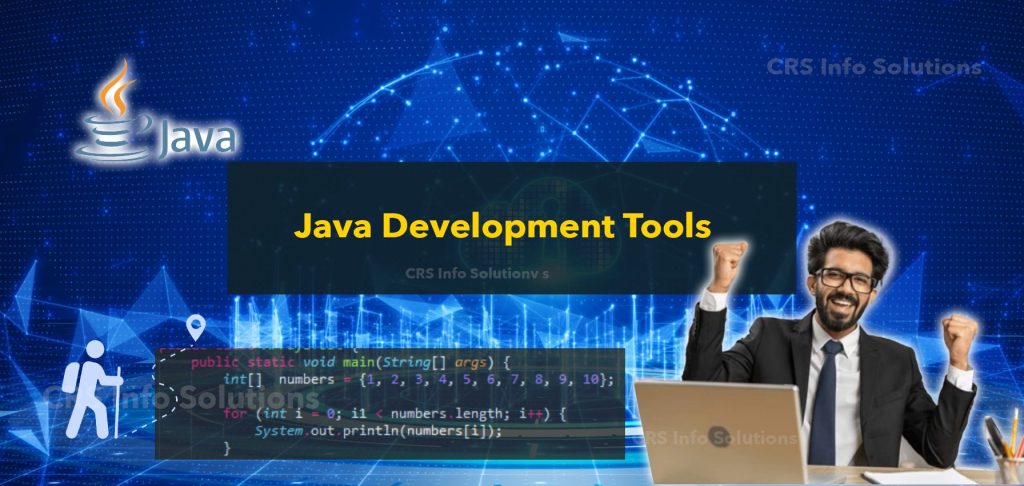
A Beginner’s Guide to Java Development Tools

Table of Contents
- Integrated Development Environment (IDE)
- Build Tools
- Version Control System
- Debugging and Testing Tools
- Conclusion
Hello, fellow coders!
Today, I’m diving into the essential toolbox every Java developer should be familiar with.
When I first started my journey in Java development, I was amazed by the vast array of tools available to make our lives easier. These tools not only help in writing code but also in debugging, testing, and deploying our Java applications.
Let’s walk through this toolkit together, in a way that I wish someone had explained to me when I was starting out.
Integrated Development Environment (IDE):
The first gem in our toolkit is the Integrated Development Environment, or IDE. It’s like the Swiss Army knife for developers. An IDE typically provides comprehensive facilities to programmers for software development.
Eclipse:
Eclipse is one of the most popular IDEs for Java developers. It’s like having a smart assistant by your side. It offers code completion, syntax highlighting, and an extensive range of plugins.
// In Eclipse, writing a simple 'sysout' and pressing Ctrl + Space will auto-complete to:
System.out.println();
IntelliJ IDEA:
Another powerhouse in the world of Java development is IntelliJ IDEA. It’s known for its out-of-the-box experience and supports a multitude of languages and frameworks beyond Java.
// IntelliJ also offers advanced code completion, refactoring, and on-the-fly code analysis.
// Just typing 'sout' and pressing Enter will auto-complete to:
System.out.println();
Enhance your Java skills with our experienced trainers who are ready to guide you into becoming a seasoned Java professional with our Java training. Dive into hands-on, real-time projects that prepare you for real-world programming challenges. Enroll for a free demo today and start your journey towards Java expertise!
Build Tools:
Once you start creating more complex applications, you’ll realize the need for automating your build processes. This is where build tools come into play.
Maven:
Maven helps in project management and comprehension. It’s not just about building your code but also about handling dependencies, documentation, and reporting.
<!-- In your pom.xml, adding a dependency is as simple as: -->
<dependencies>
<dependency>
<groupId>junit</groupId>
<artifactId>junit</artifactId>
<version>4.12</version>
</dependency>
</dependencies>
Gradle:
Gradle is another popular tool that combines the power of flexibility with performance. It’s designed for multi-project builds and supports incremental builds.
// In your build.gradle, you can define dependencies like:
dependencies {
testImplementation 'junit:junit:4.12'
}
Version Control Systems:
In the world of coding, collaboration and version control are key. This is where tools like Git come in.
Git:
Git helps you track changes, revert to previous stages, and collaborate with others. Platforms like GitHub, GitLab, or Bitbucket provide hosting for software development and version control using Git.
// Basic Git commands include:
git add .
git commit -m "Your commit message"
git push
Debugging and Testing Tools:
Finally, ensuring that your code is bug-free and works as expected is crucial. Tools like JUnit for testing and various debugging features within IDEs are indispensable.
JUnit:
JUnit is a simple framework to write repeatable tests in Java, ensuring that your code does what it’s supposed to do.
// A simple JUnit test case looks like:
import static org.junit.Assert.*;
import org.junit.Test;
public class SimpleTest {
@Test
public void testAddition() {
assertEquals(4, 2 + 2);
}
}
Conclusion:
Embarking on my Java development journey felt daunting at first, but familiarizing myself with these tools has been a game-changer. Each tool, in its own way, has made the coding process more efficient, collaborative, and enjoyable. Whether it’s writing code in an IDE, managing dependencies with Maven or Gradle, maintaining versions with Git, or ensuring code quality with JUnit, these tools are the unsung heroes of a Java developer’s journey. I encourage you to explore, experiment, and find the tools that best fit your workflow. Happy coding!
In this blog post, we explored the fundamental tools in the Java development toolkit. From writing and automating code to collaboration and testing, these tools form the backbone of efficient and effective Java development. As you grow in your coding journey, these tools will not only enhance your productivity but also bring joy to the creative process of coding!
Enroll for our real time job based java training, register for free demo.

